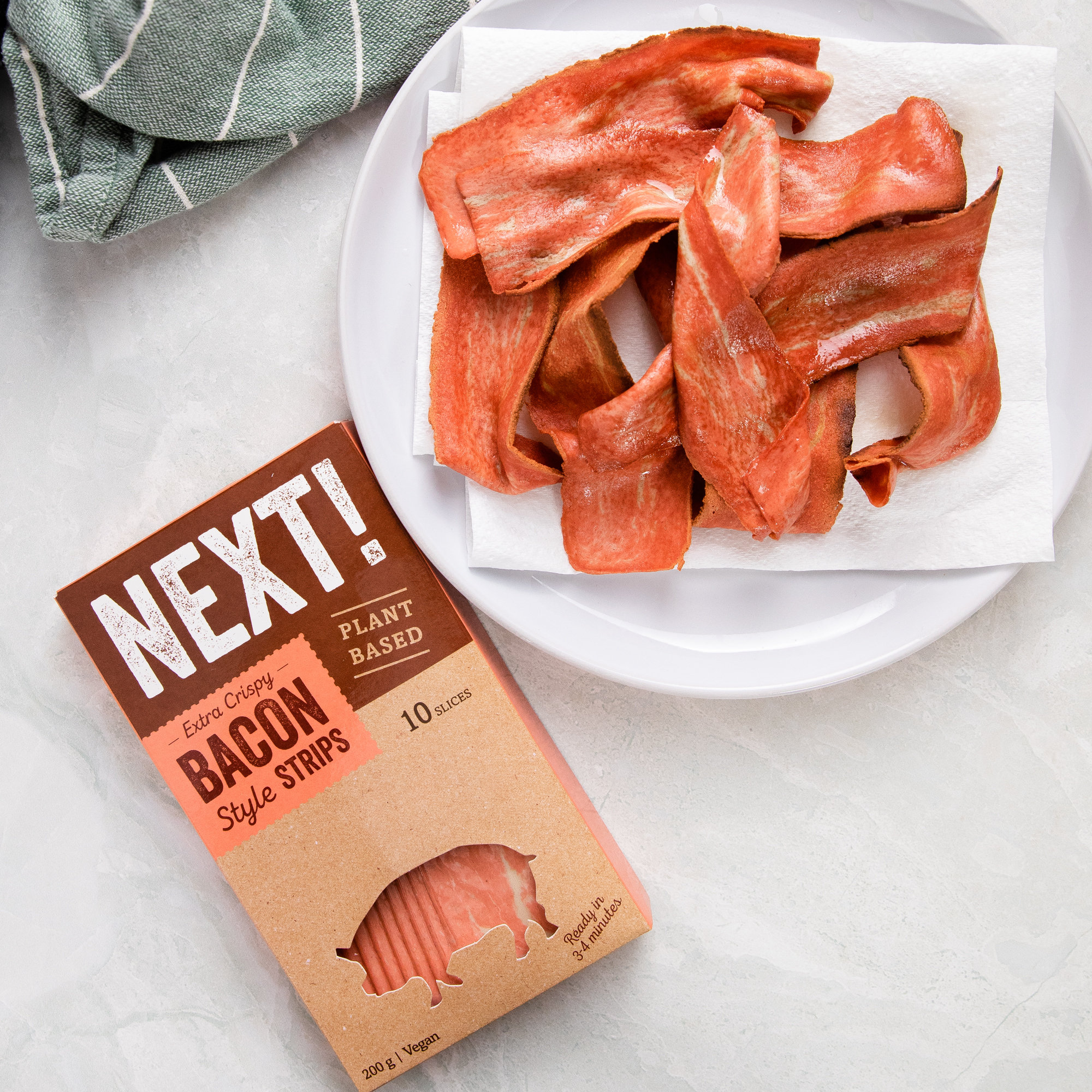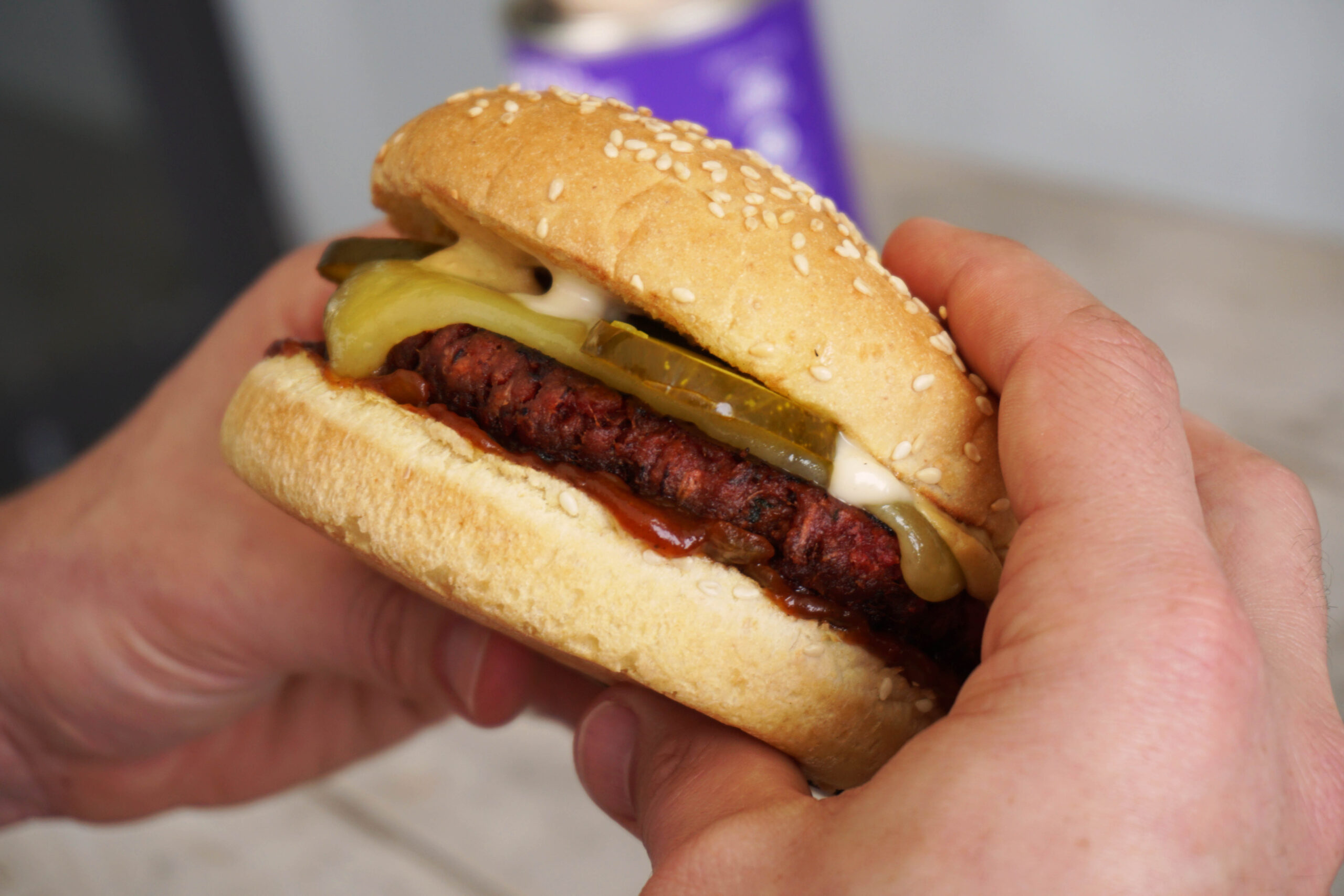Authored by Biren Doshi, co-founder of NEXT! Foods
Not so long ago, the only vegetarian meat substitute in New Zealand was the lowly veggie burger. Usually bundled away in some dark corner of the supermarket freezer section, cultivating ice crystals. You could always try one of the less than convincing tofu “steak” recipes instead, but really – If you were craving something meaty – the options were few and far between.
Fast forward to 2020, and the world is a different place. Over the past year, we have seen incredible technological innovation in the plant-based food industry. The quality of products, and their likeness to animal-based meat continues to astonish vegetarians and carnivores alike.
A billion dollar industry
It’s no surprise then that the global market for plant-based meat alternatives is projected to grow to $2.1 billion NZD by 2022. And studies show that a third of Kiwis are cutting down on their meat consumption. Unlike previous years, these are largely “reducetarians” or “flexitarians.” They are eating less meat – for the planet, animal welfare, their health – but stopping short of becoming vegans or vegetarians.
You only have to glance at the shelves to see that New Zealand supermarkets are responding. The number of plant-based meat options has sky-rocketed, with more jostling for space alongside real meat products. No longer banished to the freezer, they are holding their own in the chilled section as well.
Plant based bacon that sizzles
For example, NEXT! Extra Crispy Bacon Style Strips have recently landed in New Zealand, rubbing shoulders with real bacon in Countdown supermarkets across the country.
Tasty and realistic, the strips cook, sizzle and taste exactly like bacon. But they are completely meat-free.
NEXT! has so much confidence in the New Zealand market, we are also planning to bring our super realistic Chick’n Chunks to New Zealand next year.
The chunks pull apart like real chicken, and are deliciously moist, giving home cooks the satisfying taste and texture of meat without any of the downsides. Bring on that meat-free chicken curry!
Plant-based meats are just getting started
Hyper realistic plant based meats are certainly enjoying their moment in the sun. Along with bacon and chicken that would fool even the most discerning carnivore, brands are creating burgers, sausages, mince and even fish fillets that have never been within a hair’s breadth of a real animal.
It’s a rapidly growing, ever-evolving industry. In New Zealand alone, I would estimate that the plant-based meat market has recently grown from next to nothing to $30-40 million annually.
There has been increased consumer interest in healthier eating in general, and that combined with innovation and the development of more great-tasting meat alternatives for consumers to choose from, has led to this boom in plant-based meats. This has been picked up by media, which leads to more awareness, which encourages more shoppers to give meat-free meat a go. It just continues to snowball and has led to plant-based foods becoming much more mainstream, very quickly.
The next normal?
Despite a recent explosion in products, the industry is still in its junior stages – barely up and walking with an enormous amount of growth ahead of it. Veggie burgers have been around for decades, whereas plant-based meats are quite different and still relatively new. The next generation is really designed for meat eaters, rather than the traditional vegan or vegetarian. People that like the taste of meat but want to cut down a little and mix up their meals with some alternatives.
If I had to make a prediction as to what the future might hold, I would say that the lines between meat and meat-free products will become more and more seamless. Plant-based bacon and sausages will increasingly share the same space as their meaty counterparts, in the chilled section. Prices will continue to come down as the technology develops and larger numbers of stores bow to pressure from consumers. In years to come, I don’t think we’ll even be talking about plant-based versus meat in the same way – it will simply be an accepted, commonplace choice, in the same way than any of the traditional proteins are. That’s something I can’t wait to see.
For more information on NEXT! Foods, visit nextfoods.co.







